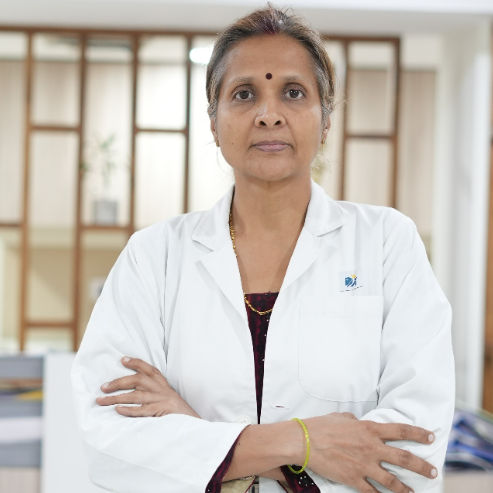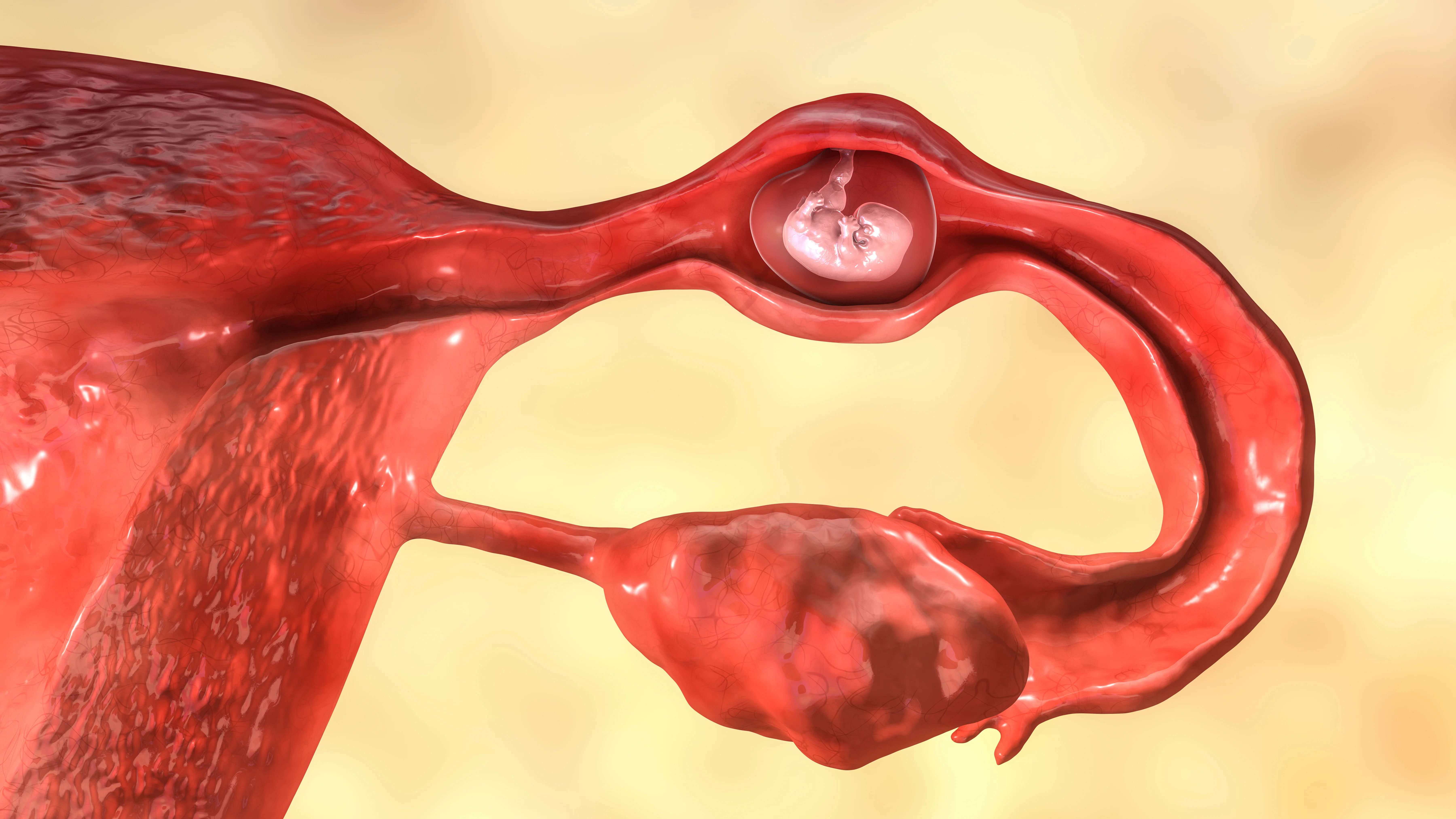Ectopic Pregnancy: Symptoms, Causes, and Treatment
Ectopic pregnancy occurs when a fertilised egg implants outside the uterus, most often in the fallopian tube. Learn about its symptoms, causes, risk factors, diagnosis, and treatment for a safe recovery.


Pregnancy is usually a joyful experience, but sometimes complications can arise, one of which is an ectopic pregnancy. This condition occurs when a fertilised egg implants and grows outside the uterus, most commonly in the fallopian tube. Unfortunately, an ectopic pregnancy cannot proceed normally and can be life-threatening if not treated promptly.
In this article, we’ll discuss the symptoms, causes, risk factors, and treatment options for ectopic pregnancy in simple terms. We’ll also provide guidance on when to seek medical help and how to manage recovery.
What is an Ectopic Pregnancy?
Normally, a fertilised egg travels through the fallopian tube and implants itself in the uterus, where it grows into a baby. However, in an ectopic pregnancy, the egg implants somewhere else—most often in the fallopian tube (tubal pregnancy). Rarely, it may attach to the ovary, cervix, or abdominal cavity.
Since these areas are not designed to support a growing embryo, the pregnancy cannot continue safely. If left untreated, the growing tissue can cause severe internal bleeding, which is a medical emergency.
Symptoms of Ectopic Pregnancy
Early signs of an ectopic pregnancy may resemble those of a normal pregnancy, such as:
- Missed period
- Breast tenderness
- Nausea
However, as the pregnancy progresses outside the uterus, warning signs may appear, including:
Early Warning Signs:
- Sharp or stabbing pelvic pain (usually on one side)
- Vaginal bleeding (lighter or heavier than a normal period)
- Shoulder pain (due to internal bleeding irritating nerves)
- Weakness, dizziness, or fainting (signs of blood loss)
Emergency Symptoms (Seek Help Immediately):
- Severe abdominal or pelvic pain in
- Heavy bleeding
- Extreme dizziness or fainting
- Low blood pressure (feeling very weak or lightheaded)
If you experience any of these symptoms, seek emergency medical care immediately.
Causes and Risk Factors of Ectopic Pregnancy
An ectopic pregnancy happens when the fertilised egg cannot move properly to the uterus. Some possible causes and
risk factors include:
1. Damaged Fallopian Tubes
- Previous pelvic infections (like sexually transmitted infections such as chlamydia or gonorrhea)
- Pelvic inflammatory disease (PID)
- Previous ectopic pregnancy
- Surgery on the fallopian tubes (including tubal ligation or reversal)
2. Hormonal or Structural Issues
- Hormonal imbalances affecting egg movement
- Abnormal fallopian tube shape (due to birth defects or scarring)
3. Other Risk Factors
- Smoking (increases risk of tubal damage)
- Fertility treatments (such as IVF)
- Being over 35 years old
- History of endometriosis
Diagnosis of Ectopic Pregnancy
If an ectopic pregnancy is suspected, doctors may perform:
- Pelvic Exam – To check for pain or abnormal growths.
- Blood Tests – To measure pregnancy hormone (hCG) levels (lower or slower rise than normal).
- Ultrasound – To locate the pregnancy (transvaginal ultrasound is most accurate).
Early diagnosis is crucial to prevent complications.
Treatment Options for Ectopic Pregnancy
Since an ectopic pregnancy cannot survive, treatment focuses on removing the pregnancy safely to protect the mother’s
health. Options include:
1. Medication (Methotrexate)
- Used if the pregnancy is detected early and the fallopian tube hasn’t ruptured.
- A single injection stops the embryo’s growth, allowing the body to absorb it.
- Follow-up blood tests ensure hCG levels drop properly.
2. Surgery (Laparoscopy or Laparotomy)
- Laparoscopy (minimally invasive) – Small incisions remove the ectopic tissue.
- Laparotomy (open surgery) – Needed in emergencies if there’s heavy bleeding.
- In some cases, the fallopian tube may need to be removed.
Consult a Gynaecologist for Personalised Advice
3. Expectant Management (Rarely Used)
- Only if hCG levels are very low and dropping naturally.
- Close monitoring is essential to avoid complications and Future Pregnancies
Physical Recovery
- After medication or surgery, rest is important.
- Avoid heavy lifting or strenuous activity for a few weeks.
- Follow-up appointments ensure complete recovery.
Emotional Support
- Losing a pregnancy can be emotionally difficult.
- Counselling or support groups can help with grief.
Future Pregnancies
- Many women go on to have healthy pregnancies later.
- If one fallopian tube is damaged or removed, the other can still function.
- If both tubes are affected, fertility treatments (like IVF) may be needed.
Can Ectopic Pregnancy Be Prevented?
While not all cases can be prevented, you can reduce risks by:
- ✔ Treating STIs promptly to avoid pelvic infections.
- ✔ Quitting smoking, as it increases risks.
- ✔ Seeking early prenatal care if pregnant to detect issues early.
When to See a Doctor?
If you experience:
- Severe pelvic pain
- Unusual vaginal bleeding
- Dizziness or fainting
Do not wait; seek emergency care immediately.
If you’re planning a pregnancy or have concerns about an ectopic pregnancy, consult a specialist at Apollo 24|7. You can book an appointment or lab tests easily through the Apollo 24|7 app for expert guidance.
Final Thoughts
An ectopic pregnancy is a serious condition, but with timely medical care, most women recover fully and can have healthy pregnancies in the future. If you suspect any symptoms, do not delay—seek help right away.
Would you like to speak to a specialist? Book a consultation today on Apollo 24|7!
Consult a Gynaecologist for Personalised Advice
Consult a Gynaecologist for Personalised Advice

Dr. Rupam Manna
Radiation Specialist Oncologist
7 Years • MBBS MD(RADIO THERAPY), CCEBDM
Barasat
Diab-Eat-Ease, Barasat

Dr. Sreeparna Roy
Obstetrician and Gynaecologist
8 Years • MBBS , MS (OBSTETRICS & GYNAECOLOGY), Fellowship in Infertility, Endoscopy & Ultrasonography), Fellowship in Laparoscopy & Hysteroscopy,DRM
Kolkata
Dr Utsa Basu Clinic, Kolkata

Dr. Sai Lakshmi Daayana
Gynaecological Oncologist
18 Years • MBBS, MRCOG
Hyderabad
Apollo Hospitals Jubilee Hills, Hyderabad
(225+ Patients)

Dr. Revathi S Rajan
Obstetrician and Gynaecologist
24 Years • MBBS, DGO, DNB.FFMM
Bengaluru
Apollo Clinic, JP nagar, Bengaluru

Dr Bhawna Garg
Gynaecological Oncologist
26 Years • MBBS, MS, (PGI MS ROHTAK) FELLOWSHIP GYNECOLOGY ONCOLOGY, (CANCER INSTITUTE CHENNAI)
Delhi
Apollo Hospitals Indraprastha, Delhi
Consult a Gynaecologist for Personalised Advice

Dr. Rupam Manna
Radiation Specialist Oncologist
7 Years • MBBS MD(RADIO THERAPY), CCEBDM
Barasat
Diab-Eat-Ease, Barasat

Dr. Sreeparna Roy
Obstetrician and Gynaecologist
8 Years • MBBS , MS (OBSTETRICS & GYNAECOLOGY), Fellowship in Infertility, Endoscopy & Ultrasonography), Fellowship in Laparoscopy & Hysteroscopy,DRM
Kolkata
Dr Utsa Basu Clinic, Kolkata

Dr. Sai Lakshmi Daayana
Gynaecological Oncologist
18 Years • MBBS, MRCOG
Hyderabad
Apollo Hospitals Jubilee Hills, Hyderabad
(225+ Patients)

Dr. Revathi S Rajan
Obstetrician and Gynaecologist
24 Years • MBBS, DGO, DNB.FFMM
Bengaluru
Apollo Clinic, JP nagar, Bengaluru

Dr Bhawna Garg
Gynaecological Oncologist
26 Years • MBBS, MS, (PGI MS ROHTAK) FELLOWSHIP GYNECOLOGY ONCOLOGY, (CANCER INSTITUTE CHENNAI)
Delhi
Apollo Hospitals Indraprastha, Delhi

